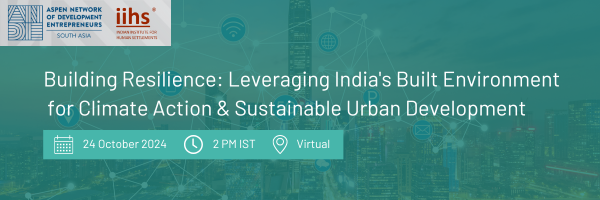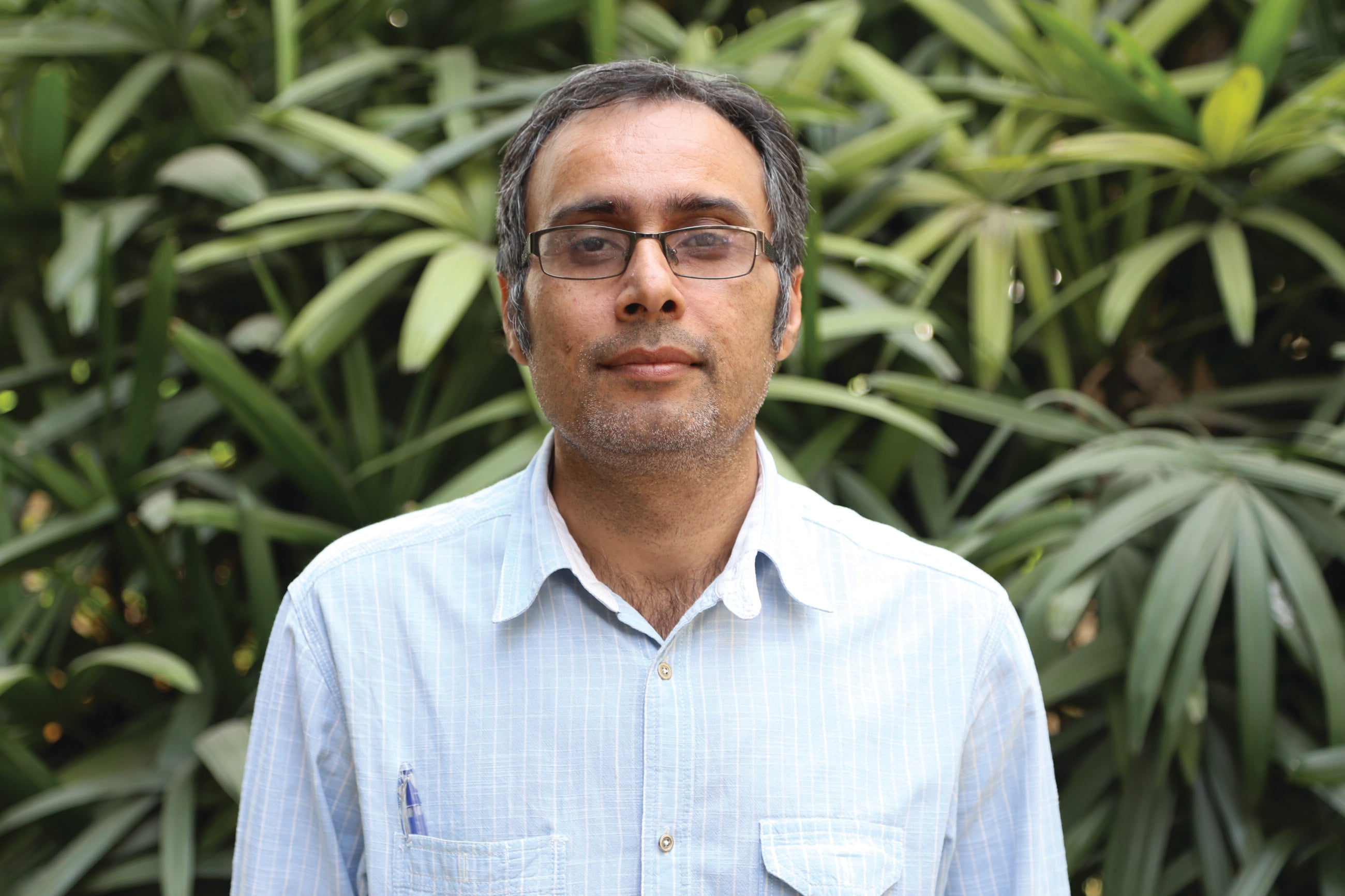
The built environment in India plays a pivotal role in determining how cities adapt to climate change and embrace sustainable growth. As urbanization accelerates, the need to design cities that are resilient, climate-friendly, and inclusive has become increasingly urgent. The Indian Institute for Human Settlements (IIHS) has been a leader in advancing research and practice on sustainable urban development in India. By integrating climate resilience, circular economy principles, and inclusive urban design, IIHS has demonstrated how urban infrastructure can drive climate action.
ANDE South Asia, in collaboration with IIHS, will focus on IIHS’s work in the built environment and explore actionable strategies for India’s cities to embrace sustainable practices during this fireside chat.
Join us for an insightful fireside chat with IIHS as we explore India’s journey towards achieving its climate goals, focusing on the commercial real estate sector, one of the largest global contributors to energy consumption and greenhouse gas (GHG) emissions. While both residential and commercial buildings play a role, commercial real estate stands out as a critical area for immediate action, given its significant share of emissions.
We’ll discuss how energy efficiency and retrofitting can transform the built environment and tackle GHG emissions head-on. Beyond energy, the conversation will cover IIHS’s broader mission to address the skill and knowledge gap by providing capacity building and training to both youth and practitioners in the sector.
Discover how IIHS is leading the charge in commercializing high-potential startups in energy, water, and waste management, and hear about their work with some of India’s largest builders to develop high-performance buildings.
This six-year program not only targets energy efficiency but also challenges the common perception that high-performance buildings come with high capital and operating expenses, aiming to build evidence to the contrary.
Don’t miss this opportunity to learn about India’s path to greener, more sustainable infrastructure!

Aromar Revi, Director, IIHS
A global thought and practice leader, and educator, Aromar’s work spans sustainable development, governance, urbanisation, climate science and disaster risk reduction. With nearly 240 major practice, consulting and research assignments worldwide, and close to 40 years of interdisciplinary experience, he is a highly cited scholar across multiple fields.
Aromar has been a senior advisor to the Government of India and UN agencies, and has consulted with national and international development institutions. He is Co-chair of the UN Sustainable Development Solutions Network (SDSN), member of the UCLG-Ubuntu and the Global Commission on the Economics of Water. A leading climate scientist, and CLA of multiple IPCC reports, he is one of South Asia’s leading risk and disaster management professionals and has been on UNDRR’s Advisory Board for eight of its Global Assessment of Risk reports.

Amir Bazaz, Associate Dean IIHS School of Environment and Sustainability; IIHS School of Systems and Infrastructure
Amir is a leading expert on issues at the intersection of economics, climate change, mitigation, adaptation and sustainable development. He specialises in Public Systems and has extensive experience with integrated assessment frameworks. His current research interests include low-carbon societies, climate adaptation and mitigation, and urban-climate linkages.
Amir has served as a National Expert Consultant to the Ministry of Environment, Forests and Climate Change, Government of India, for the Second National Communication to the UNFCCC. Amir is a part of many practice-based engagements at IIHS, including those focussing on Energy Innovation, Sustainability of Ecosystem Services, and Migration-Climate Resilience dynamics for Indian cities.
